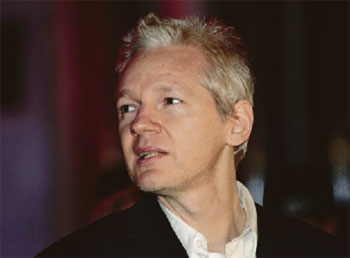Between Nobel and Confucius
Professor Tan Sri Dato' Dzulkifli Abd Razak
Learning Curve : Perspective
New Sunday Times - 12/19/2010
THE recent Nobel Peace Prize award ceremony came and went without much of the usual fanfare. The publicity it garnered was rather mellow, ranging from reports of boycotts, threats and accusation of bias to disrespect.
Last year, United States President Barack Obama hogged the limelight when he won the Nobel Peace Prize although his selection too was not without controversy.
Then, many wondered if it was much too early to accord him the prestigious award based seemingly on a criterion of "hope". If that is so, isn't there any other leader of a sovereign nation who would qualify on the same measure? What about the leaders of China, past or present, who have exhibited a larger degree of "hope", given how China has grown to be recognised as an important player by the international community?
Perhaps China may be defaulted on issues such as human rights. But so too has the US given its record of torture (never mind WikiLeaks) and other abuses of human rights -- maybe not so much on US soil, but certainly in other parts of the world where it has a hegemonic presence. Guantanamo is a case in point, which Obama has promised to solve, but not quite!
Learning Curve : Perspective
New Sunday Times - 12/19/2010
THE recent Nobel Peace Prize award ceremony came and went without much of the usual fanfare. The publicity it garnered was rather mellow, ranging from reports of boycotts, threats and accusation of bias to disrespect.
Last year, United States President Barack Obama hogged the limelight when he won the Nobel Peace Prize although his selection too was not without controversy.
Then, many wondered if it was much too early to accord him the prestigious award based seemingly on a criterion of "hope". If that is so, isn't there any other leader of a sovereign nation who would qualify on the same measure? What about the leaders of China, past or present, who have exhibited a larger degree of "hope", given how China has grown to be recognised as an important player by the international community?
Perhaps China may be defaulted on issues such as human rights. But so too has the US given its record of torture (never mind WikiLeaks) and other abuses of human rights -- maybe not so much on US soil, but certainly in other parts of the world where it has a hegemonic presence. Guantanamo is a case in point, which Obama has promised to solve, but not quite!

Many will follow closely the controversy surrounding Julian Assange
Until now, Nobel Peace Laureate Obama's record in the fight for peace is a let-down. The latest is epitomised by his failure to get the Zionist regime to halt the building of a settlement in the occupied territory as a gesture to get the stalled peace talks on track. This is despite a US$3 billion (RM9.6 billion) security assistance package, diplomatic cover and an advanced F-35 fighter aircraft that go along with it.
Obama has recently lost much of his "Yes, we can" gusto! He is now on "Yes, we can but..." mode. The "but" is about compromises, especially after his so-called "shellacking" in the congressional elections last month where he acknowledged that "we lost track of the ways we connected with the folks who got us here in the first place". Apparently, the Palestinians are not among them.
In short, such is the risk of pinning our hopes too early on any individual, even the most powerful man on Earth!
This time by choosing a controversial dissenter (who happens to be China-born Liu Xiaobo), the Nobel Peace Prize is facing another challenge.
A similar question was raised this year: Aren't there other dissenters in the world who have stamped an equivalent mark in the fight for freedom and democracy? Off the cuff, one can recall quite a few who have been locked away without trial for speaking out. Indeed, the gut feeling is that the current choice of Nobel Peace Prize Laureate has more to do with China than the winner.
Dare we speculate that WikiLeaks founder Julian Assange stands a chance to be a Nobel Peace Prize Laureate? After all, he is also a dissenter who has been speaking out, hunted down and put under detention allegedly for sexual misconduct.
Assange dismissed the accusation of the misconduct as "dirty tricks" meant to punish him for WikiLeaks activities that incurred the wrath of the US and its allies.
However, world leaders such as Russian Prime Minister Vladimir Putin condemned the arrest which he regards as against the spirit of free speech.
Similarly, Australian Foreign Minister Kevin Rudd says: "Mr. Assange is not himself responsible for the unauthorised release of 250,000 documents from the US diplomatic communications network." Assange too has his share of ardent supporters, including celebrities and some hackers who are prepared to indulge in a "cyberwar" to protect WikiLeaks from being dismantled.
This is one continuing saga that many will watch closely. Should Assange fail to win the Nobel Peace Prize, there is the Confucius Peace Prize!
* The writer is the Vice-Chancellor of Universiti Sains Malaysia. He can be contacted at vc@usm.my
